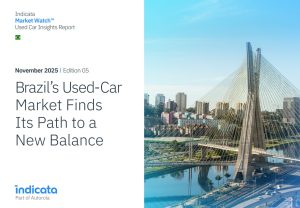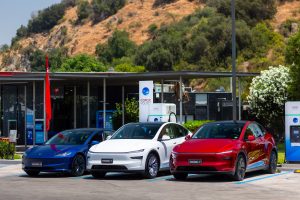
BlackRock, Deloitte, Element Fleet Management and Proeza Ventures Analyze the Role of the Financial Sector on the Sustainable Mobility Transition
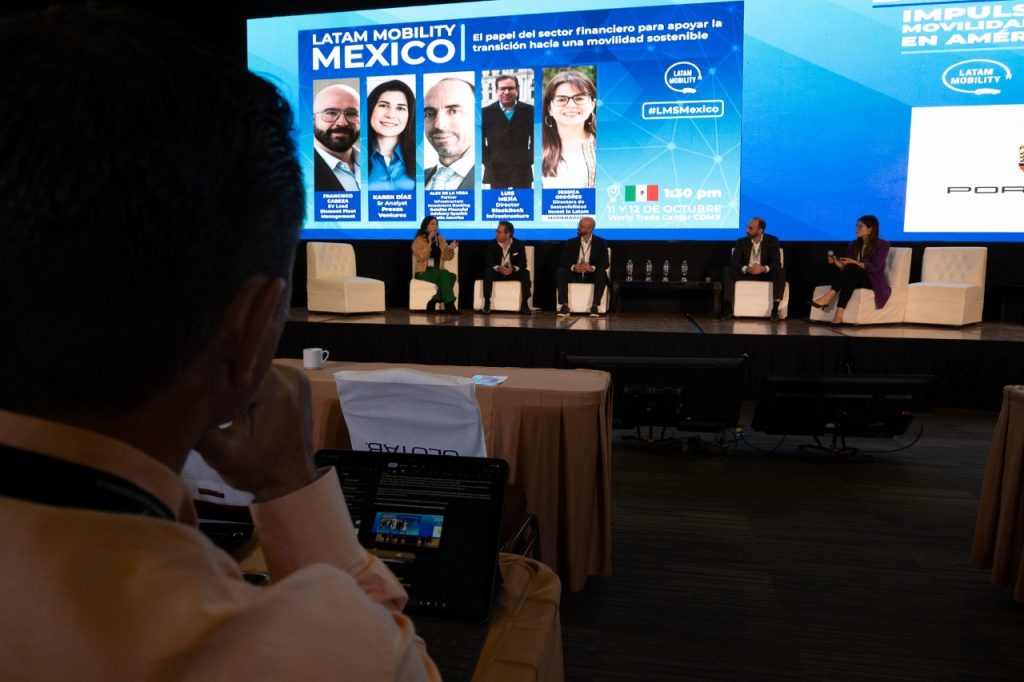
On the road towards the decarbonization of mobility in public, private and freight transportation, the support of the financial sector is essential to leverage the multiple projects that must be carried out in the transition process in Latin America.
For this reason, Latam Mobility, the largest community linked to sustainable mobility in Latin America, organized the “Latam Mobility: Mexico 2022” panel entitled “The Role of the Financial Sector Supporting the Transition to Sustainable Mobility“, which brought together a group of representatives of financial companies to learn about the current situation, perspectives and progress of the sector in relation to the decarbonization of transportation in the region.
The panel was attended by Alejandro De La Vega, Partner Infrastructure Investment Banking at Deloitte Financial Advisory Latin America; Francisco Cabeza, EV Lead at Element Fleet Management; Luis Mejía Avilés, BlackRock Infrastructure Director, and Karen Díaz, Proeza Ventures Senior Analyst, under the moderation of Jessica Ordóñez, Sustainability Director at Invest in Latam.
Incentivizing Sustainable Mobility
Alejandro De La Vega, representative of Deloitte Latin America, the number one global financial firm providing audit, consulting, tax and advisory services, pointed out the importance of regulation when structuring projects. “Cities have different needs, and they must be planned and structured, and not the other way around, especially in the renewable issue where there are built projects that cannot be interconnected.”
On the other hand, he indicated the need for incentives for the mobility sector. “We are a country that is among the largest exporters and manufacturers of parts, so it is incredible that there is no incentive for electric vehicles as we see in the United States. A clear incentive would give a huge boost to the automotive industry. Banking in general has to redirect all its efforts for the purposes and mandates, be it export, works and infrastructure.”
“Cities will continue to grow; the rural population is migrating to the cities and that is a huge challenge globally, and particularly in Latin America. Transportation is a key issue to make these big cities better places, and it is a challenge we all face,” emphasized the Deloitte representative.
You may also be interested in: Conuee, Énestas, Engie, Grupo Energía Bogotá, Naturgy and SkySense Discuss the Present and Future of Clean Fuels in Mexico
Private Initiative
Francisco Cabeza, EV Lead of Element Fleet Management, the world’s largest vehicle lessor, pointed out the current momentum of private initiative. “In Latin America we have a lot to say in electric mobility, there are more than 100 companies in Mexico and the region that have commitments and we know that with a transition with the country’s energy mix, we can reduce 60% of carbon dioxide emissions. The only thing they have to do is to change their electric fleet and there will be people in this forum who will tell me.
In addition, the representative of Element pointed out that the company offers an integral solution for electric mobility called “Arc by Element“, based on six pillars: the vehicle; energy; smart charging infrastructure; insurance, which is still expensive and is not in line with the safety of this technology; after-sales maintenance; and IoT (Internet of things), to monitor the vehicle and the infrastructure.
On the other hand, Francisco Cabeza pointed out that electric mobility can indeed be a reality from the private initiative. “Our analysis indicates that with the right leasing, monthly energy costs can be 1.5 times lower than those of internal combustion, and longer terms should be made and types of financing should be identified. Latin America has a lot to say in the transition to electric mobility.”
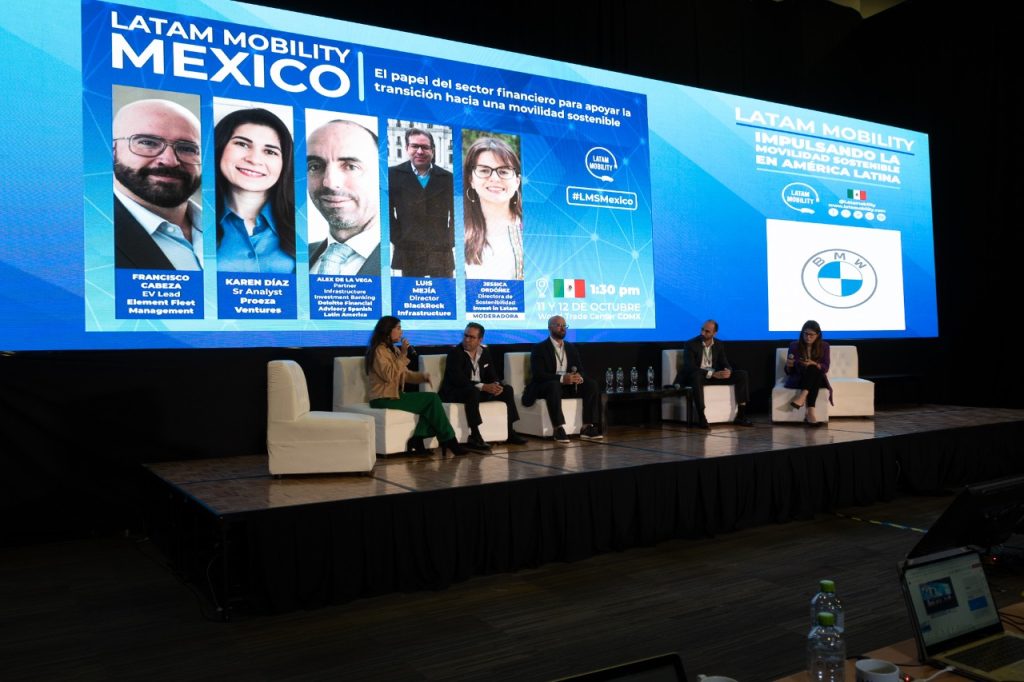
The Key: Mass Transportation
Luis Mejía Avilés, Director of BlackRock Infrastructure, the infrastructure division of the multinational financial services company, pointed out the appetite of investors, as well as the lack of projects in the region. “We may be missing a golden opportunity in this decade in Latin America because there are not enough projects at the country and city level. There is a lot of appetite by institutional investors from all over the world to invest in Latin America, and a lot of liquidity in the market, which is not being taken advantage of due to the lack of bankable projects.”
And he pointed out that this is due to many reasons, not only to governmental changes in the region. “There are specific projects in Brazil, Chile, Colombia and Mexico, but the need for more electric mass transit projects is about 100 times more than there are. Governments do not have the capacity to take the processes to bidding processes and it will take several years before they do. We need subway and electric transportation lines, which are very attractive projects for institutional investors”.
On the other hand, the representative of BlackRock Infrastructure indicated three key points to present a good project. “The most important is the legal certainty of knowing that the contract in the project will be respected. The second is the scale to make it attractive to institutional investors, and the third would be to share risks, making it clear which ones are on the government’s side and which ones are on the private developer’s.”
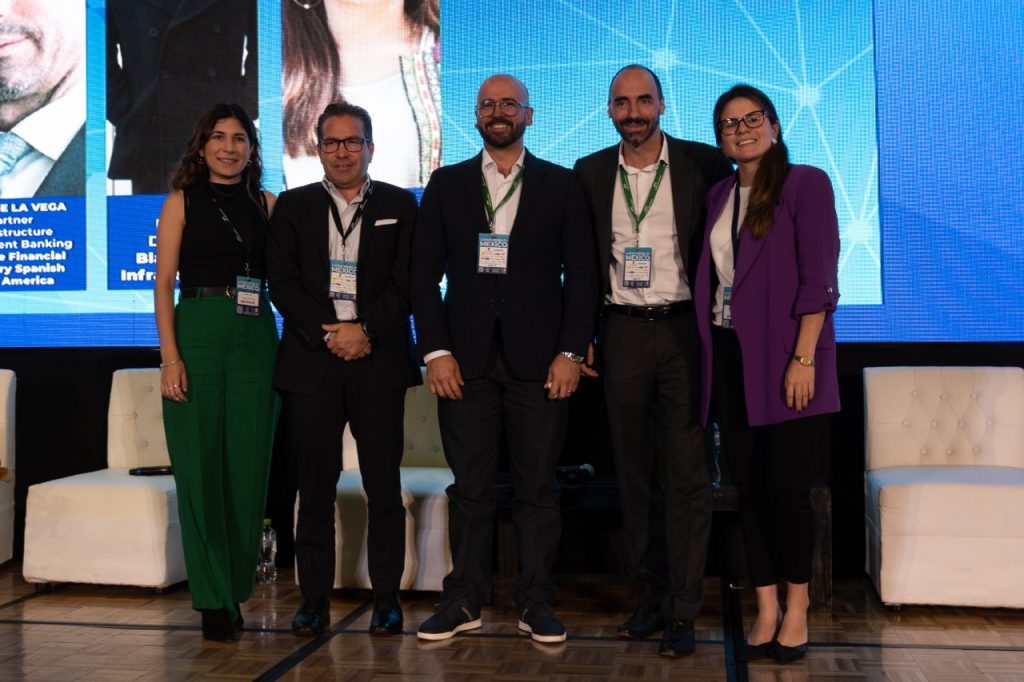
Technology + Regulations
Karen Díaz, Senior Analyst at Proeza Ventures, the largest mobility fund in Latin America with five major investments in the region, indicated that mass transit is a great opportunity for a “quick-win” in reducing emissions. “It is essential to make logistics processes and associated technology more efficient, and we believe that the infrastructure sector and digitalization are a good investment opportunity on the road to sustainability.”
On the other hand, Diaz pointed to the importance of financing and government support in sustainable mobility. “New companies and start-ups are betting on a green future. What is needed is support, as happens in other countries where for every peso they get from a bank, the government grants another. Public and private investments must be matched, and there are many efficient ways to accelerate this growth”.
Finally, the Proeza Ventures representative indicated the main challenges facing sustainable mobility in the region. “Technology and its scalability are a win-win opportunity for startups as it can drive adoption. However, sometimes technology moves faster than regulations, so its implementation is complicated, as there are no rules to support them.”




